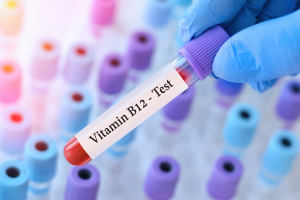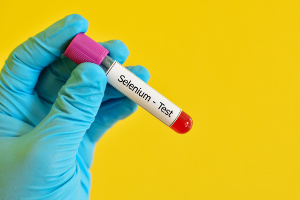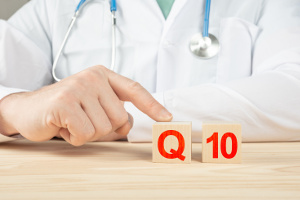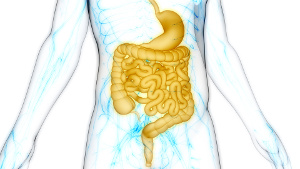afterLoad (456.3KB) (5.32ms)
afterInitialise (1.27MB) (54.94ms)
afterRoute (857.48KB) (24ms)
beforeRenderComponent com_content (35.24KB) (358μs)
Before Access::preloadComponents (all components) (69.88KB) (9.67ms)
After Access::preloadComponents (all components) (98.07KB) (6.74ms)
Before Access::preloadPermissions (com_content) (1.6KB) (11μs)
After Access::preloadPermissions (com_content) (3.29MB) (22.69ms)
Before Access::getAssetRules (id:62 name:com_content.category.20) (130.65KB) (134μs)
After Access::getAssetRules (id:62 name:com_content.category.20) (7.38KB) (5.11ms)
Before Access::getAssetRules (id:8 name:com_content) (51.77KB) (73.59ms)
After Access::getAssetRules (id:8 name:com_content) (6.17KB) (42μs)
afterRenderComponent com_content (1.33MB) (305ms)
afterDispatch (32.63KB) (7.83ms)
beforeRenderRawModule mod_articles_category (READ MORE...) (350.71KB) (19.11ms)
afterRenderRawModule mod_articles_category (READ MORE...) (84.63KB) (258ms)
beforeRenderRawModule mod_tags_popular (Search) (4.81KB) (55μs)
afterRenderRawModule mod_tags_popular (Search) (6.63KB) (127ms)
beforeRenderRawModule mod_custom (BOOST YOUR IMMUNE DEFENSE) (960B) (33μs)
afterRenderRawModule mod_custom (BOOST YOUR IMMUNE DEFENSE) (4.2KB) (1.43ms)
beforeRenderRawModule mod_custom (Are you taking supplements) (736B) (31μs)
afterRenderRawModule mod_custom (Are you taking supplements) (1.03KB) (40μs)
beforeRenderRawModule mod_articles_category (Get additionel and more detailed knowledge about) (8.41KB) (25μs)
afterRenderRawModule mod_articles_category (Get additionel and more detailed knowledge about) (44.39KB) (16.25ms)
beforeRenderRawModule mod_custom (Antiaging) (6.97KB) (32μs)
afterRenderRawModule mod_custom (Antiaging) (1KB) (45μs)
beforeRenderRawModule mod_custom (Exercise) (720B) (12μs)
afterRenderRawModule mod_custom (Exercise) (1.02KB) (23μs)
beforeRenderRawModule mod_custom (Check this before you buy a Q10 product) (752B) (10μs)
afterRenderRawModule mod_custom (Check this before you buy a Q10 product) (944B) (20μs)
beforeRenderModule mod_articles_category (READ MORE...) (267.89KB) (10.4ms)
afterRenderModule mod_articles_category (READ MORE...) (1.25KB) (86μs)
beforeRenderModule mod_tags_popular (Search) (5.17KB) (17μs)
afterRenderModule mod_tags_popular (Search) (2.52KB) (27μs)
beforeRenderModule mod_custom (BOOST YOUR IMMUNE DEFENSE) (1.31KB) (12μs)
afterRenderModule mod_custom (BOOST YOUR IMMUNE DEFENSE) (1.28KB) (21μs)
beforeRenderModule mod_custom (Are you taking supplements) (352B) (10μs)
afterRenderModule mod_custom (Are you taking supplements) (1.28KB) (20μs)
beforeRenderModule mod_articles_category (Get additionel and more detailed knowledge about) (8.03KB) (18μs)
afterRenderModule mod_articles_category (Get additionel and more detailed knowledge about) (1.31KB) (20μs)
beforeRenderModule mod_custom (Antiaging) (7.33KB) (10μs)
afterRenderModule mod_custom (Antiaging) (1.27KB) (21μs)
beforeRenderModule mod_custom (Exercise) (336B) (9μs)
afterRenderModule mod_custom (Exercise) (1.25KB) (19μs)
beforeRenderModule mod_custom (Check this before you buy a Q10 product) (352B) (10μs)
afterRenderModule mod_custom (Check this before you buy a Q10 product) (1.28KB) (19μs)
beforeRenderRawModule mod_menu (Main menu-US) (28.53KB) (1.82ms)
afterRenderRawModule mod_menu (Main menu-US) (157.05KB) (3.52ms)
beforeRenderModule mod_menu (Main menu-US) (720B) (8μs)
afterRenderModule mod_menu (Main menu-US) (4.36KB) (78μs)
beforeRenderRawModule mod_languages (Sprogskift) (3.44KB) (24μs)
afterRenderRawModule mod_languages (Sprogskift) (29.88KB) (3.78ms)
beforeRenderModule mod_languages (Sprogskift) (720B) (8μs)
afterRenderModule mod_languages (Sprogskift) (5.31KB) (26μs)
beforeRenderRawModule mod_finder () (6.34KB) (14μs)
afterRenderRawModule mod_finder () (154.54KB) (6.73ms)
beforeRenderModule mod_finder () (704B) (6μs)
afterRenderModule mod_finder () (3.29KB) (43μs)
beforeRenderRawModule mod_custom () (6.62KB) (164μs)
afterRenderRawModule mod_custom () (90.52KB) (5.4ms)
beforeRenderModule mod_custom () (704B) (9μs)
afterRenderModule mod_custom () (1.23KB) (67μs)
beforeRenderRawModule mod_menu (Main menu-US) (5.07KB) (140μs)
afterRenderRawModule mod_menu (Main menu-US) (5.8KB) (711μs)
beforeRenderModule mod_menu (Main menu-US) (720B) (3μs)
afterRenderModule mod_menu (Main menu-US) (3.75KB) (2.29ms)
beforeRenderRawModule mod_languages (Sprogskift Mobil) (912B) (31μs)
afterRenderRawModule mod_languages (Sprogskift Mobil) (3.89KB) (1.88ms)
beforeRenderModule mod_languages (Sprogskift Mobil) (720B) (8μs)
afterRenderModule mod_languages (Sprogskift Mobil) (1.27KB) (40μs)
beforeRenderRawModule mod_finder () (2.3KB) (14μs)
afterRenderRawModule mod_finder () (6.29KB) (800μs)
beforeRenderModule mod_finder () (704B) (7μs)
afterRenderModule mod_finder () (1.23KB) (60μs)
beforeRenderRawModule mod_custom () (8.66KB) (203μs)
afterRenderRawModule mod_custom () (904B) (171μs)
beforeRenderModule mod_custom () (704B) (3μs)
afterRenderModule mod_custom () (2.43KB) (32μs)
beforeRenderRawModule mod_custom () (688B) (99μs)
afterRenderRawModule mod_custom () (896B) (103μs)
beforeRenderModule mod_custom () (704B) (2μs)
afterRenderModule mod_custom () (2.71KB) (23μs)
afterRender (180.79KB) (19.18ms)
| 1 x afterRenderComponent com_content (1.33MB) (30.52%) | 305.15ms |
| 1 x afterRenderRawModule mod_articles_category (READ MORE...) (84.63KB) (25.78%) | 257.73ms |
| 1 x afterRenderRawModule mod_tags_popular (Search) (6.63KB) (12.72%) | 127.18ms |
| 1 x Before Access::getAssetRules (id:8 name:com_content) (51.77KB) (7.36%) | 73.59ms |
| 1 x afterInitialise (1.27MB) (5.5%) | 54.94ms |
| 1 x afterRoute (857.48KB) (2.4%) | 24.00ms |
| 1 x After Access::preloadPermissions (com_content) (3.29MB) (2.27%) | 22.69ms |
| 1 x afterRender (180.79KB) (1.92%) | 19.18ms |
| 1 x beforeRenderRawModule mod_articles_category (READ MORE...) (350.71KB) (1.91%) | 19.11ms |
| 1 x afterRenderRawModule mod_articles_category (Get additionel and more detailed knowledge about) (44.39KB) (1.62%) | 16.25ms |
| 1 x beforeRenderModule mod_articles_category (READ MORE...) (267.89KB) (1.04%) | 10.40ms |
| 1 x Before Access::preloadComponents (all components) (69.88KB) (0.97%) | 9.67ms |
| 1 x afterDispatch (32.63KB) (0.78%) | 7.83ms |
| 1 x After Access::preloadComponents (all components) (98.07KB) (0.67%) | 6.74ms |
| 1 x afterRenderRawModule mod_finder () (154.54KB) (0.67%) | 6.73ms |
| 1 x afterRenderRawModule mod_custom () (90.52KB) (0.54%) | 5.40ms |
| 1 x afterLoad (456.3KB) (0.53%) | 5.32ms |
| 1 x After Access::getAssetRules (id:62 name:com_content.category.20) (7.38KB) (0.51%) | 5.11ms |
| 1 x afterRenderRawModule mod_languages (Sprogskift) (29.88KB) (0.38%) | 3.78ms |
| 1 x afterRenderRawModule mod_menu (Main menu-US) (157.05KB) (0.35%) | 3.52ms |
| 1 x afterRenderModule mod_menu (Main menu-US) (3.75KB) (0.23%) | 2.29ms |
| 1 x afterRenderRawModule mod_languages (Sprogskift Mobil) (3.89KB) (0.19%) | 1.88ms |
| 1 x beforeRenderRawModule mod_menu (Main menu-US) (28.53KB) (0.18%) | 1.82ms |
| 1 x afterRenderRawModule mod_custom (BOOST YOUR IMMUNE DEFENSE) (4.2KB) (0.14%) | 1.43ms |
| 1 x afterRenderRawModule mod_finder () (6.29KB) (0.08%) | 800μs |
| 1 x afterRenderRawModule mod_menu (Main menu-US) (5.8KB) (0.07%) | 711μs |
| 1 x beforeRenderComponent com_content (35.24KB) (0.04%) | 358μs |
| 1 x beforeRenderRawModule mod_custom () (8.66KB) (0.02%) | 203μs |
| 1 x afterRenderRawModule mod_custom () (904B) (0.02%) | 171μs |
| 1 x beforeRenderRawModule mod_custom () (6.62KB) (0.02%) | 164μs |
| 1 x beforeRenderRawModule mod_menu (Main menu-US) (5.07KB) (0.01%) | 140μs |
| 1 x Before Access::getAssetRules (id:62 name:com_content.category.20) (130.65KB) (0.01%) | 134μs |
| 1 x afterRenderRawModule mod_custom () (896B) (0.01%) | 103μs |
| 1 x beforeRenderRawModule mod_custom () (688B) (0.01%) | 99μs |
| 1 x afterRenderModule mod_articles_category (READ MORE...) (1.25KB) (0.01%) | 86μs |
| 1 x afterRenderModule mod_menu (Main menu-US) (4.36KB) (0.01%) | 78μs |
| 1 x afterRenderModule mod_custom () (1.23KB) (0.01%) | 67μs |
| 1 x afterRenderModule mod_finder () (1.23KB) (0.01%) | 60μs |
| 1 x beforeRenderRawModule mod_tags_popular (Search) (4.81KB) (0.01%) | 55μs |
| 1 x afterRenderRawModule mod_custom (Antiaging) (1KB) (0%) | 45μs |
| 1 x afterRenderModule mod_finder () (3.29KB) (0%) | 43μs |
| 1 x After Access::getAssetRules (id:8 name:com_content) (6.17KB) (0%) | 42μs |
| 1 x afterRenderRawModule mod_custom (Are you taking supplements) (1.03KB) (0%) | 40μs |
| 1 x afterRenderModule mod_languages (Sprogskift Mobil) (1.27KB) (0%) | 40μs |
| 1 x beforeRenderRawModule mod_custom (BOOST YOUR IMMUNE DEFENSE) (960B) (0%) | 33μs |
| 1 x beforeRenderRawModule mod_custom (Antiaging) (6.97KB) (0%) | 32μs |
| 1 x afterRenderModule mod_custom () (2.43KB) (0%) | 32μs |
| 1 x beforeRenderRawModule mod_custom (Are you taking supplements) (736B) (0%) | 31μs |
| 1 x beforeRenderRawModule mod_languages (Sprogskift Mobil) (912B) (0%) | 31μs |
| 1 x afterRenderModule mod_tags_popular (Search) (2.52KB) (0%) | 27μs |
| 1 x afterRenderModule mod_languages (Sprogskift) (5.31KB) (0%) | 26μs |
| 1 x beforeRenderRawModule mod_articles_category (Get additionel and more detailed knowledge about) (8.41KB) (0%) | 25μs |
| 1 x beforeRenderRawModule mod_languages (Sprogskift) (3.44KB) (0%) | 24μs |
| 1 x afterRenderModule mod_custom () (2.71KB) (0%) | 23μs |
| 1 x afterRenderRawModule mod_custom (Exercise) (1.02KB) (0%) | 23μs |
| 1 x afterRenderModule mod_custom (Antiaging) (1.27KB) (0%) | 21μs |
| 1 x afterRenderModule mod_custom (BOOST YOUR IMMUNE DEFENSE) (1.28KB) (0%) | 21μs |
| 1 x afterRenderRawModule mod_custom (Check this before you buy a Q10 product) (944B) (0%) | 20μs |
| 1 x afterRenderModule mod_custom (Are you taking supplements) (1.28KB) (0%) | 20μs |
| 1 x afterRenderModule mod_articles_category (Get additionel and more detailed knowledge about) (1.31KB) (0%) | 20μs |
| 1 x afterRenderModule mod_custom (Exercise) (1.25KB) (0%) | 19μs |
| 1 x afterRenderModule mod_custom (Check this before you buy a Q10 product) (1.28KB) (0%) | 19μs |
| 1 x beforeRenderModule mod_articles_category (Get additionel and more detailed knowledge about) (8.03KB) (0%) | 18μs |
| 1 x beforeRenderModule mod_tags_popular (Search) (5.17KB) (0%) | 17μs |
| 1 x beforeRenderRawModule mod_finder () (6.34KB) (0%) | 14μs |
| 3 x beforeRenderModule mod_custom () (704B) (0%) | 14μs |
| 1 x beforeRenderRawModule mod_finder () (2.3KB) (0%) | 14μs |
| 2 x beforeRenderModule mod_finder () (704B) (0%) | 13μs |
| 1 x beforeRenderRawModule mod_custom (Exercise) (720B) (0%) | 12μs |
| 1 x beforeRenderModule mod_custom (BOOST YOUR IMMUNE DEFENSE) (1.31KB) (0%) | 12μs |
| 2 x beforeRenderModule mod_menu (Main menu-US) (720B) (0%) | 11μs |
| 1 x Before Access::preloadPermissions (com_content) (1.6KB) (0%) | 11μs |
| 1 x beforeRenderRawModule mod_custom (Check this before you buy a Q10 product) (752B) (0%) | 10μs |
| 1 x beforeRenderModule mod_custom (Are you taking supplements) (352B) (0%) | 10μs |
| 1 x beforeRenderModule mod_custom (Check this before you buy a Q10 product) (352B) (0%) | 10μs |
| 1 x beforeRenderModule mod_custom (Antiaging) (7.33KB) (0%) | 10μs |
| 1 x beforeRenderModule mod_custom (Exercise) (336B) (0%) | 9μs |
| 1 x beforeRenderModule mod_languages (Sprogskift) (720B) (0%) | 8μs |
| 1 x beforeRenderModule mod_languages (Sprogskift Mobil) (720B) (0%) | 8μs |
 The number of older people is increasing rapidly, which means more and more people suffer from different types of dementia. Vitamin D supplementation may help prevent dementia or delay its progression, according to a population study that is published in Alzheimer’s & Dementia: Diagnosis, Assessment & Disease Monitoring. It is important to have optimal blood levels of the nutrient throughout life, simply because it often takes years for dementia to develop, and because vitamin D has many different functions that are relevant for brain health.
The number of older people is increasing rapidly, which means more and more people suffer from different types of dementia. Vitamin D supplementation may help prevent dementia or delay its progression, according to a population study that is published in Alzheimer’s & Dementia: Diagnosis, Assessment & Disease Monitoring. It is important to have optimal blood levels of the nutrient throughout life, simply because it often takes years for dementia to develop, and because vitamin D has many different functions that are relevant for brain health.








 Cholesterol is an essential compound with many different functions. However, it can also turn into a potentially dangerous substance if it oxidizes and is embedded in the blood vessel walls. This oxidative process is what eventually leads to atherosclerosis. The trace element selenium protects against atherosclerosis because of its antioxidant properties and because of other mechanisms, according to a review article published in Biomedicine. This is highly relevant in our part of the world where cardiovascular disease is the leading cause of death, and where selenium deficiency is so widespread.
Cholesterol is an essential compound with many different functions. However, it can also turn into a potentially dangerous substance if it oxidizes and is embedded in the blood vessel walls. This oxidative process is what eventually leads to atherosclerosis. The trace element selenium protects against atherosclerosis because of its antioxidant properties and because of other mechanisms, according to a review article published in Biomedicine. This is highly relevant in our part of the world where cardiovascular disease is the leading cause of death, and where selenium deficiency is so widespread. Migraine headaches, a problem that affects far more women than men, is one of the diseases that costs most sick days, and there is no medical treatment that can cure the underlying cause. What we eat appears to play a major role, which is because foods such as matured cheese, chocolate, caffeinated beverages, red wine, and monosodium glutamate (MSG) can trigger migraines and headaches. Also, eating an unbalanced diet that is low in specific nutrients such as magnesium, B vitamins, and Q10 can disrupt certain metabolic processes, thereby setting off an attack. This was seen in a new study that is published in Frontiers in Nutrition.
Migraine headaches, a problem that affects far more women than men, is one of the diseases that costs most sick days, and there is no medical treatment that can cure the underlying cause. What we eat appears to play a major role, which is because foods such as matured cheese, chocolate, caffeinated beverages, red wine, and monosodium glutamate (MSG) can trigger migraines and headaches. Also, eating an unbalanced diet that is low in specific nutrients such as magnesium, B vitamins, and Q10 can disrupt certain metabolic processes, thereby setting off an attack. This was seen in a new study that is published in Frontiers in Nutrition.



 Non-alcoholic fatty liver disease (NAFLD) that is linked to overweight and type 2 diabetes may eventually cause critical liver inflammation, liver fibrosis, and liver cancer. The diet plays a major role, and scientists from Oregon State University have observed that the omega-3 fatty acids that we get from oily fish are able to fight this harmful liver condition. This has enormous therapeutic value because there are currently no available therapies. It is also important to avoid altogether or limit your intake of refined carbohydrates and refined omega-6 fatty acids from plant oil.
Non-alcoholic fatty liver disease (NAFLD) that is linked to overweight and type 2 diabetes may eventually cause critical liver inflammation, liver fibrosis, and liver cancer. The diet plays a major role, and scientists from Oregon State University have observed that the omega-3 fatty acids that we get from oily fish are able to fight this harmful liver condition. This has enormous therapeutic value because there are currently no available therapies. It is also important to avoid altogether or limit your intake of refined carbohydrates and refined omega-6 fatty acids from plant oil.